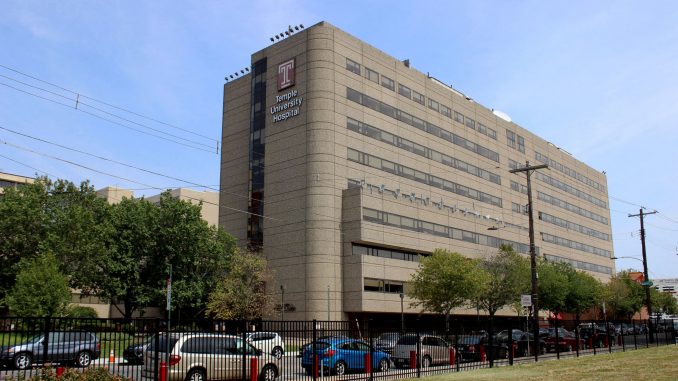
On an average weekend, Temple University Hospital is busy: the facility typically sees 500 patients pass through its doors. But in a couple of weeks, the hospital is preparing for what should be an even heavier workload.
During the Pope’s visit, five downtown hospitals—Children’s Hospital of Philadelphia, Penn Presbyterian Medical Center, Pennsylvania Hospital, Hahnemann University Hospital and Jefferson University Hospital—will have restricted access. TUH is outside of this restricted papal zone, and will likely treat many patients who might otherwise enter those five locations.
TUH’s Chief Medical Officer Herb Cushing has experience dealing with sudden patient volume increases. After working at Indiana University Hospital during the Indy 500, he said these types of weekends sometimes result in “dehydration, and heart attacks and strokes for the elderly.”
However, Cushing said he is not concerned about the potentially overwhelming number of patients at the hospital. He believes the number of Philadelphians fleeing the town will balance with the number of people who will be visiting to see the Pope.
The labor and delivery room is a concern for many, as this is a division that will be facing overflow from the other hospitals. The Hospital is used to handling new patients: on a daily basis, about 30 percent of its women are first-time patients, and often have never received prenatal care.
Chuck Herbert, senior mission support coordinator at the Temple Transport Team, believes the organ transplant system—another primary concern—will remain effective. The process of organ transplant is complicated but will most likely be unaffected by traffic, he said.
If an organ in the region becomes available, it will be flown by helicopter to the hospital and given to the next recipient on the list, Herbert said. Unfortunately, if this recipient is unable to reach the hospital, it will be donated to the next eligible recipient. The first intended recipient will remain at the top of the list in the future, Herbert added.
A potential problem also lies with the emergency room, which sees about 230 patients in an average day. Luckily, Philadelphia medical care has spent months planning for the papal visit. They will be setting up booths downtown for minor injuries, and Cushing hopes this will steady the flow of emergency room patients.
In addition to this precaution, the hospital has extra physicians in place for the weekend, Cushing said. He added that he is not worried about patient influx but is concerned about traffic in the region.
It will be difficult for Philadelphians to get around that weekend, and for hospital staff, this could be a problem. In order to prevent any issues, Cushing said he is overbooking staff so people can take breaks on the chance that they are unable to leave the hospital. Temple University Hospital will not be depending on interns and residents and will have the same number of medical students working as usual.
Herbert said ambulances will be able to navigate the area effectively during the papal visit.
“Closed roads will be a challenge, but ambulances will have special passes in order to pass safely through,” Hebert said. He added the Temple Transport Team will have “increased staffing and more trucks in the event of a, God forbid, catastrophe.”
Ultimately, Cushing said he doesn’t anticipate any unexpected problems once the weekend arrives.
“My crystal ball says no surge,” Cushing said of the number of patients the hospital expects.
Lila Gordon can be reached at lila.gordon@temple.edu.



Be the first to comment